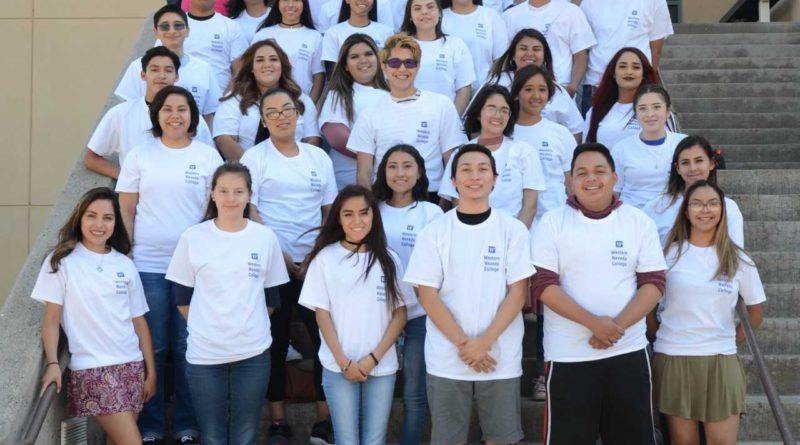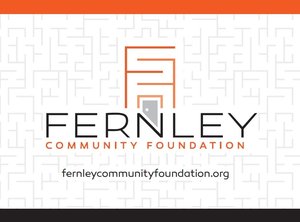Evolving Latino Cohort provides students with more opportunities, paths to degrees

Courtesy Steve Yingling, Western Nevada College
For many first-generation college students, the transition from high school to college presents a number of cultural obstacles. Some need remedial preparation in key subjects; others require help accessing the financial aid available to them; and for others, English is their second language.
WNC is addressing those needs with the Latino Cohort, which promotes enrollment, course completion and degree attainment among Latino students.
Since 2010, the Latino Cohort has helped Latino students at WNC overcome potential cultural barriers so they can earn an associate degree and be prepared to continue their education at a four-year school or transition directly into the workplace successfully.
“Our goal is to create that bridge for students to go to UNR to finish their bachelor’s degree or complete Career and Technical Education programs like nursing, construction management or advanced manufacturing and enter the workforce with above entry level pay,” said WNC Latino Outreach Coordinator Lupe Ramirez.
The Latino Cohort has helped Liliana Arroyo in many ways and provided her with the inspiration and motivation to help other students in the cohort.
“The cohort has helped me stay on track with all my credits and classes I need for the degree I am seeking. Also, being in the cohort has helped me fill out scholarships and financial aid, which was important to me because when I was going into college my parents and I didn’t know how to do any of it,” said Arroyo, who now serves as a cohort coach.
The cohort, however, is doing much more for these students in its eighth year. They are learning the value of serving the community they live in, interning, networking with the city’s movers and shakers and they are sharing their culture with the community.
Bringing awareness of the cohort’s power
To make more families in the area aware of Latino Cohort and all the programs at WNC, Ramirez gives presentations at area high schools.
She also makes regular visits to area churches to spread the life-changing message about the Latino Cohort.
An important goal for Ramirez and the program is to make parents aware as early as possible so they can prepare their children for an education beyond high school.
“I know the parents get excited when we share our programs with them, and they are definitely very supportive,” Ramirez said. “That’s why it’s important to have these conversations with the families, not just the kids. We are empowering the parents to also know what is offered to their son or daughter so they can help them.”
Learning together, achieving together
The cohort is currently serving 103 students, including 63 first-year members. About half of the first-year students benefit from block scheduling, which includes 90-minute supplemental instruction periods twice per week. These sessions are led by high achievers who are already in the cohort or who were previously part of the group.
“It says a lot for what we are offering the students,” Ramirez said. “We have quality-educated peers helping them through this process. You can tell that the students appreciate it and respect that. They learn that they can succeed as long as they put the effort in and ask for help.”
One of those high achievers is Arroyo, who derives satisfaction from helping her peers succeed.
“It is very rewarding seeing the students accomplish their goals and get good grades because you can see it in them that they realize they can do it if they put in the work,” she said. “I help the students keep track of their homework and help with any questions they might have about it. I also help point them in the right direction to get the help they need if I can’t help them.”
Networking in the city
Through internships with Carson City, the Latino Cohort students are learning what is required in real-world occupations.
“They have been working with city officials to learn how to do newsletters, how to be reporters, how to conduct interviews, write articles in newspapers — all kinds of media/social media activities,” Ramirez said. “They will also be lining up five of our kids to get them involved on radio and a local TV stations. There are lots of opportunities for them.”
More importantly, they are meeting and creating friendships with city leaders.
“Learning about real-world opportunities is the fun part of going to college. They see why they are going to college versus just reading and taking exams and being in the classroom,” Ramirez said. “They are being exposed to networking out in the community. It is very important, and I tell them: You may think that you are just volunteering, but you are actually creating networking that you need. I tell them it is almost as important as having a job. It’s neat to see them engage in the community and meet city officials and important people.”
Sharing Their Culture with the Community
As busy as the students are with their education, work and families and friends, they are devoted to celebrating and sharing their culture with the campus and community.
The cohort helped the community get into Christmas spirit by recently holding the first-ever Posada Celebration.
And earlier in the fall, the cohort and the Association of Latin America Students held the Dia de los Muertos (Day of the Dead) celebration on campus to honor the deceased.
It was so successful that the Nevada State Museum reached out to the students to help bring back the event to the community. More than 800 community members turned out for the celebration in November, which included face painting and other activities for children, folkloric dancing, food and music.
Learn More About the Latino Cohort
For more information about the Latino Cohort, contact Ramirez at lupe.ramirez@wnc.edu or 775-445-3215.
“I encourage families to make an appointment to come meet with me because we can give them a thorough introduction to WNC,” Ramirez said. “The sooner the better, even if their children are freshmen in high school, it would be an ideal time. We would be helping them create a path be successful through their first year of college.”




